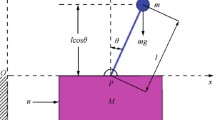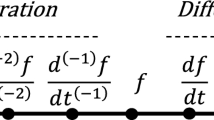Abstract
In order to reduce the influence of time-varying disturbance on motion control performance of ultrasonic motor, the speed control strategy of ultrasonic motor is studied in this paper. An iterative learning control strategy including prediction and closed-loop control is proposed by combining iterative learning control with generalized minimum variance self-tuning control. By introducing the previous control information into the objective function and using the design method of the generalized minimum variance control strategy, the generalized minimum variance iterative learning control law is obtained, which has both self-learning and self-adaptive ability. The proposed control strategy is applied to the speed control of ultrasonic motor and validated by simulation and experiment. The results of experiments under different load conditions and different given values show that good control performance can be obtained by adopting the proposed control strategy. The results of intermittent loading experiments indicate that, the ability to adapt to the non-repetitive disturbances such as sudden load mutation is enhanced.








Similar content being viewed by others
References
Shi W, Zhao H, Ma J, Yao Y (2018) Dead-zone compensation of an ultrasonic motor using an adaptive dither. IEEE Trans Ind Electron 65:3730–3739
Jong-Suk Ro, Kyung-Pyo Yi, Tae-Kyung C, Hyun-Kyo J (2013) Characteristic analysis of an traveling wave ultrasonic motor using a cylindrical dynamic contact model. J Electr Eng Technol 8(6):1415–1423
Ali TM, Farokh AS, Maria D (2016) Robust motion control of ultrasonic motors under temperature disturbance. IEEE Trans Ind Electron 63:2360–2368
Kuhne M, Rochin RG, Cos RS, Astorga GJR, Peer A (2018) Modeling and two-input sliding mode control of rotary traveling wave ultrasonic motors. IEEE Trans Ind Electron 65:7149–7159
Allahverdy D, Fakharian A, Menhaj MB (2019) Back-stepping integral sliding mode control with iterative learning control algorithm for quadrotor UAVs. J Electr Eng Technol 14(6):2539–2547
Razmjou E-G, Sani SK-H, Jalil-Sadati S (2018) Output tracking of uncertain fractional-order systems via robust iterative learning sliding mode control. J Electr Eng Technol 13(4):1704–1713
Mandra S, Galkowski K, Rogers E, Rauh A, Aschemann H (2019) Performance-enhanced robust iterative learning control with experimental application to PMSM position tracking. IEEE Trans Control Syst Technol 27:1813–1819
Jian Y, Huang D, Liu J, Min D (2019) High-precision tracking of piezoelectric actuator using iterative learning control and direct inverse compensation of hysteresis. IEEE Trans Ind Electron 66:368–377
Mainali K, Panda SK, Xu JX, Senjyu T (2004) Position tracking performance enhancement of linear ultrasonic motor using iterative learning control. In: Proceedings of the 2004 IEEE 35th Annual Power Electronics Specialists Conference, Aachen, Germany, 20–25 June 2004, pp 4844–4849
Li ZF, Hu YM, Li D (2016) Robust design of feedback feed-forward iterative learning control based on 2D system theory for linear uncertain systems. Int J Syst Sci 47:2620–2631
Wang L, Sun L (2016) Improved robust iterative learning control of direct driven XY table. Electr Mach Control 20:1–8
Minghui Z, Fu Z, Xiao L (2018) A systematic design framework for iterative learning control with current feedback. IFAC J Syst Control 5:1–10
Xiangyuan X (2017) Adaptive control and predictive control. Tsinghua University Press, Beijing
Ioan F, Lucian MP, Cristian V, Octavian P, Iosif S (2019) Considerations regarding the design of a minimum variance control system for an induction generator. Electronics 8(5):532
Bhattarai R, Gurung N, Kamaldasan S (2018) Dual mode control of a three-phase inverter using minimum variance adaptive architecture. IEEE Trans Ind Appl 54(4):3868–3880
Ioan F, Cristian V, Iosif S, Octavian P (2019) Self-tuning strategy for a minimum variance control system of a highly disturbed process. Eur J Control 46:49–62
Grimble MJ (2018) Reduced-order non-linear generalised minimum variance control for quasi-linear parameter varying systems. IET Control Theory Appl 12(18):2495–2506
Inoue A, Deng M, Yanou A, Henmi T (2019) Multi-variable generalized minimum variance control with time-delay using interactor matrix. In: 2019 International Conference on Advanced Mechatronic Systems (ICAMechS), Kusatsu, Shiga, Japan, pp 81–86
Takuya K, Yoshihiro O, Toru Y, Sirish LS (2019) Design of a data-oriented performance driven control system based on the generalized minimum variance control law. Ind Eng Chem Res 26(26):11440–11451
Guo H, Liu C, Yong J, Cheng X, Muhammad F (2019) Model predictive iterative learning control for energy management of plug-in hybrid electric vehicle. IEEE Access 7:71323–71334
Xie H, Wen Y, Shen X, Zhang H, Sun L (2020) High-speed AFM imaging of nanopositioning stages using H∞ and iterative learning control. IEEE Trans Ind Electron 67(3):2430–2439
Chi R, Wang R, Wei Y (2019) A sliding-mode iterative learning control for a nonlinear discrete-time system via a data-driven design method. In: 2019 Chinese Control and Decision Conference (CCDC), Nanchang, China, pp 2850–2854
Shi J, Gao F, Wu TJ (2007) Single-cycle and multi-cycle generalized 2D model predictive iterative learning control (2D-GPILC) schemes for batch processes. J Process Control 17(9):715–727
Clarke DW, Gawthrop PJ (1975) Self-tuning controller. Proc IEE 122(9):929–934
Shi JZ (2014) Identification of ultrasonic motor’s non-linear Hammerstein model. J Control Autom Electr Syst. 25:537–546
Acknowledgements
This work was supported by the National Natural Science Foundation of China (U1304501).
Author information
Authors and Affiliations
Corresponding author
Additional information
Publisher's Note
Springer Nature remains neutral with regard to jurisdictional claims in published maps and institutional affiliations.
Rights and permissions
About this article
Cite this article
Jingzhuo, S., Wenwen, H. Generalized Minimum Variance Iterative Learning Speed Control of Ultrasonic Motor. J. Electr. Eng. Technol. 16, 2757–2765 (2021). https://doi.org/10.1007/s42835-021-00781-x
Received:
Revised:
Accepted:
Published:
Issue Date:
DOI: https://doi.org/10.1007/s42835-021-00781-x




